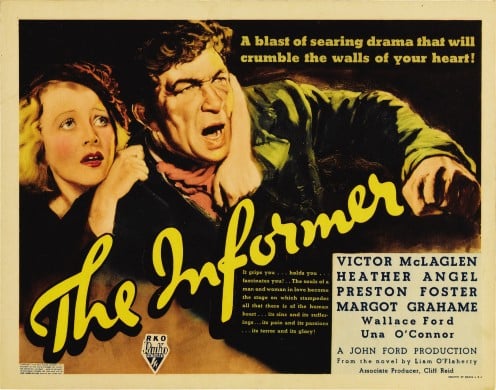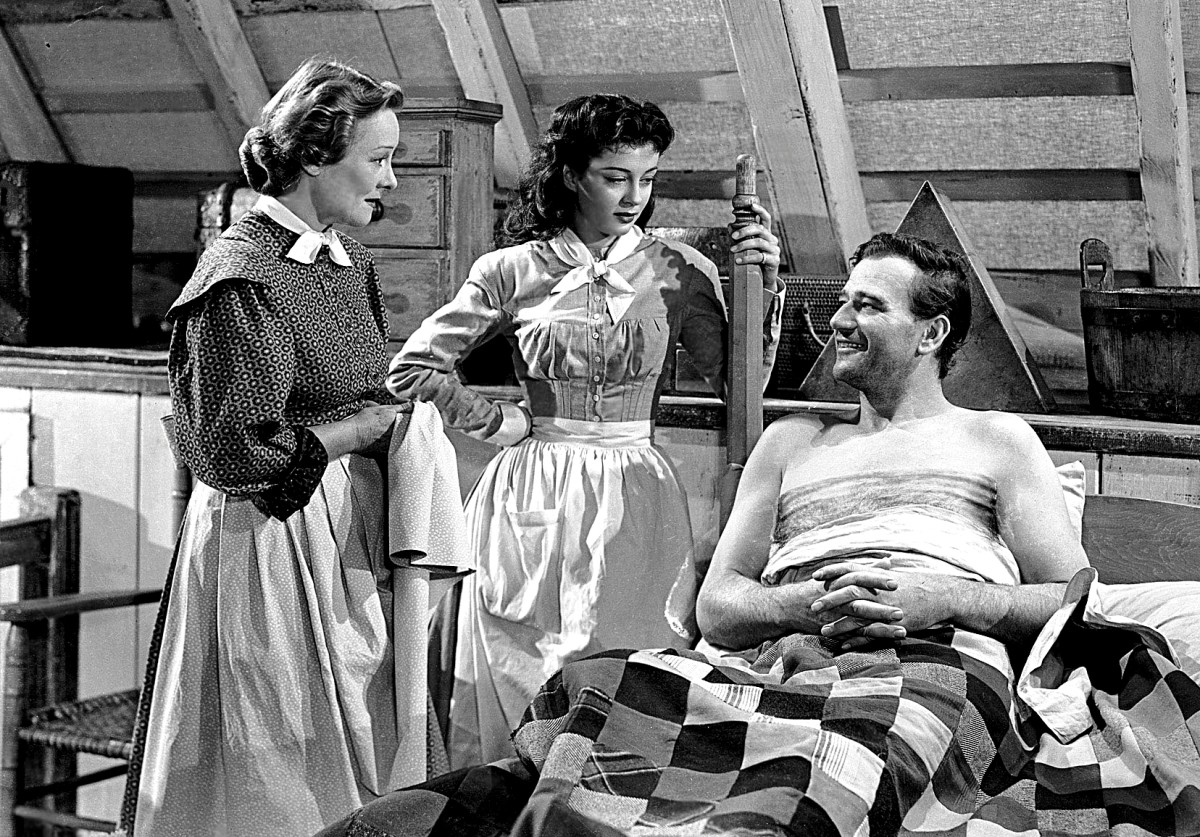Film in 1935: "The Informer"--A Gripping Drama of Betrayal, Guilt, and Forgiveness

Story
Set in 1920s Ireland during the Irish War of Independence, The Informer follows Gypo Nolan, a man whose desperate circumstances lead him to betray his best friend, Frankie McPhillip, to the British authorities for a reward. Focussed on one terrible night in 1922, the Dublin nightlife involves a street worker who’d rather be elsewhere–on a boat trip to America with her ‘one love’ Gypo Nolan—and puts into his mind to inform on a wanted murderer for twenty pounds reward so they can get away from the poverty of the streets. Problem is the wanted killer is Gypo’s best friend and a former comrade…The film follows Gypo around the streets where the sizzling deadline is 1am when he is to appear before a Republican court to find out if he narked…
Review
The Informer is a gripping drama, populated with everyday locals, they-mean-business Republican men, and stiffly formal policemen, and is punctuated by a visually rich atmosphere.
This Academy Award-winning great not only dazzles with its technical prowess—cinematography, art direction, sound, special effects—and storytelling acumen but also offers an exploration of morality, redemption, and the human condition, themes that resonate from a Christian perspective.
It can be agreed on that The Informer stands out as one of the most emotionally profound works of early cinema.
The performances, too, particularly Victor McLaglen’s portrayal of Gypo Nolan, are well honed. McLaglen’s nuanced depiction of guilt, confusion, and eventual self-realization is outstanding. The film’s score, composed by Max Steiner, is engaging, underscoring the tension and emotional gravity of the story.
A Christian Perspective
The Informer is a reflection of sin, remorse, and redemption. Gypo Nolan’s betrayal is an act of profound moral failure, which is paralleled to that of Judas, a reflection of human weakness and the corrupting influence of desperation. His subsequent journey is marked by guilt and self-destruction.
In its climactic moments, Gypo seeks forgiveness for his transgressions—both from the community and from Frankie’s grieving mother. This act of contrition mirrors repentance, where one acknowledges their sins and seeks reconciliation.
The film’s final scenes, where Gypo cries out for forgiveness, parallels grace found in the Gospel. While Gypo’s story ends tragically, it also carries a glimmer of hope. His plea for forgiveness, uttered in his final moments, reflects that redemption is possible even in the face of grave wrongdoing.
The film serves as a meditation on the consequences of sin, the necessity of repentance, and the transformative potential of grace. It challenges viewers to reflect on their own moral choices and the healing power of reconciliation.
Conclusion
In The Informer, John Ford crafted more than just a compelling drama; he created a deeply human story that speaks to spiritual truths. The film invites viewers to confront the complexities of guilt, forgiveness, and redemption, from a screenplay that does not skirt around the issues. Though it does not centre one in the actual presence of Christ for such grand themes, for those seeking a story of some spiritual depth, The Informer is a must-watch and a true gem of classic cinema.
Main Cast: Victor McLaglen, Heather Angel, Preston Foster, Margot Grahame, Wallace Ford, Una O’Connor. Based on the novel by Liam O’Flaherty. Screenplay by Dudley Nichols. Director: John Ford. Released May 9, 1935.
© 2025 Peter Veugelaers








